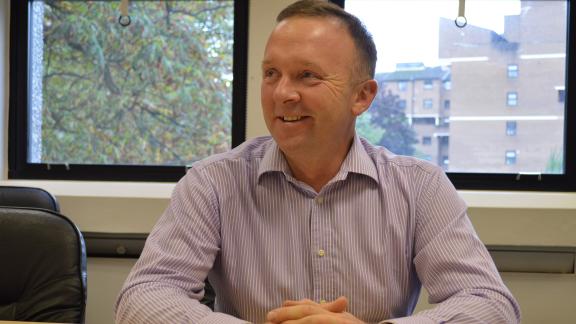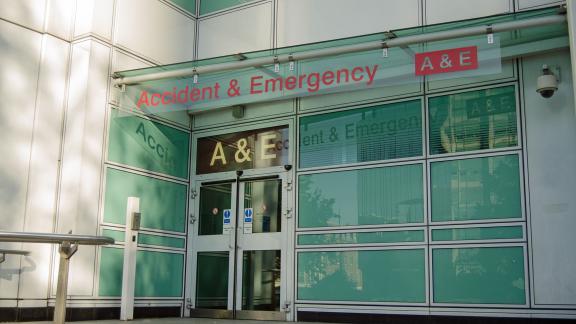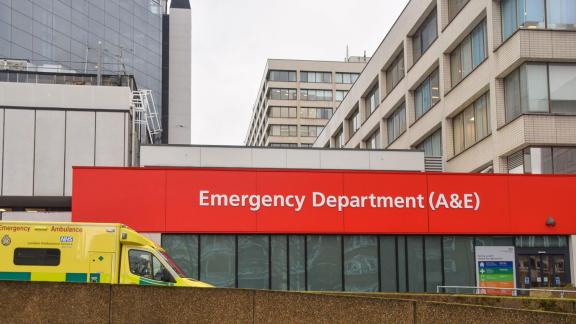Why is the NHS under such extreme pressure?

As Covid numbers stabilise and the vaccination programme continues to reach impressive milestones, why is the NHS under such extreme pressure? There’s no single reason for the situation we find ourselves in, but a multitude of complex factors across the whole health and care system. In many areas we’re seeing the highest levels of demand ever, combined with restricted capacity, increasing patient needs and high public expectation, culminating in the greatest pressure on the NHS in a generation.
Unsurprisingly, Covid is continuing to impact capacity. The need for ongoing infection prevention and control (IPC) measures within NHS sites and care settings has become part of daily business, reducing the number of patients that can safely be treated each day, both because of time and physical capacity needed to maintain social distancing. It is priority to keep staff and patients safe and as we know, even with high standards of IPC, transmission can still occur.
As restrictions have lifted, Coronavirus cases in our communities have risen, resulting in a small increase in hospital admissions and more staff needing to isolate. The vaccine is working, but even a small rise in Covid patients in hospitals and intensive care units has a disproportionate effect on the capacity to treat all patients.
In many areas we’re seeing the highest levels of demand ever, combined with restricted capacity, increasing patient needs and high public expectation, culminating in the greatest pressure on the NHS in a generation.
There is also an increase in people suffering from the longer-term effects of the virus, even if initial symptoms are mild. It seems there’s no clear evidence as to who might experience longer term effects, with latest research suggesting over 10% (1 in 9) 24-year-olds experience symptoms of long Covid.
Many staff are exhausted, with wider workforce challenges compounding the situation. High absence rates, primarily due to stress, psychological issues, needing to self-isolate or long Covid, are exacerbating staffing issues that existed before the pandemic. We need to make sure staff are looking after themselves to ensure they can care for others.
We’ve seen record-breaking demand on ambulance services and Emergency Departments (EDs) in recent weeks, with reports of long waits and handover delays across Wales. Much of this demand is from those in urgent, life-threatening situations, but some comes from frustrated patients not knowing where else to turn to access services. Some EDs have experienced up to 50% staff sickness, prompting urgent redeployment of staff from other services, greatly affecting our ability to deal with the hundreds of thousands waiting for treatment.
But none of this occurs in isolation - this is a whole-system issue. Demand is increasing across primary, community and social care services and across the wider public sector. Challenges faced by social care partners have a significant impact on the NHS, including similar if not more serious workforce capacity issues than the NHS is experiencing. This, combined with a lack of funding, means the NHS has medically fit patients unable to be discharged from hospital. Whilst NHS leaders are undertaking significant work with local authority partners to minimise disruption, there is no denying the social care sector is in crisis. These long-standing problems provide further reason for Governments across the UK to reform social care and further support the integration between health and care. The time for action on this is now – we cannot wait. The Welsh NHS and the people of Wales need a financially sustainable care sector and a properly paid and recognised workforce.
Understandably, the public’s tolerance for service disruption has fallen and their expectations have risen as “life returns to normal”. When Covid rates were high, it was easy to understand the ‘what’ and the ‘why’ of pressures on services. But as we hear of impressive vaccination rates and the subsequent effect on hospitalisations, it’s hard to understand why the NHS isn’t recovering all services at pace. The combination of factors means that the speed of elective recovery isn’t going to be what we’d like it to be.
Leaders know that thousands of patients have been waiting for months for treatment or surgery, and work is constantly being undertaken to ensure patients are kept well-informed and supported while they wait.
We will need to learn to live with Covid, but the question is, how?
However, this shouldn’t take away from the remarkable work that’s been undertaken to address the backlog, transform services and care for patients. It’s important to stress that although there is pressure on services across the board, many are coping. This is, in part, thanks to inspiring innovations and transformation in services resulting from the pandemic. There’s much to learn from this and harnessing the speed and agility of service adaptation is something that must contribute to future work. Wales’ world-leading vaccination programme is a prime example of this, at scale. Staff and partners from across health, social care and the third sector have come together to deliver the unachievable for the collective benefit of the country, through a combination of planning, agility, partnership working across boundaries and outside of silos, clear communication and efficient redeployment of resources. Not all examples are as dramatic or newsworthy, but they all have improved patient outcomes at their heart.
We know that severe pressures are being felt across the entirety of health and social care, therefore a whole-system approach is required to meet these challenges so we can provide the care and treatment needed.
We will need to learn to live with Covid, but the question is, how? There’s no magic bullet, but there are essential longer-term changes and solutions that can help – a sustainable social care and support system and affecting public behaviour, for example. These are slow burn issues and must be balanced with short-term service change and investment.
NHS leaders will do all they can to provide the best possible care to all, but improving the current situation is not something we can do alone. We need a clear multi-year financial settlement from Governments so we can plan and transform recovery and we urgently need the public to continue to help the NHS by using services appropriate to their needs where and when they can.



